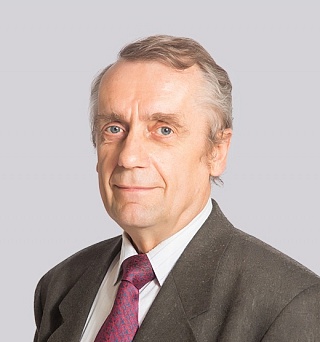Changes to Russia’s IP landscape amid newly imposed sanctions
20 October 2023Sanctions imposed on Russia work. This forces Russian authorities to dedicate more attention to the development of national economy. One of the goals proclaimed by the Russian government is to rely on domestic technologies and further develop new technologies. The reason for that is that many foreign companies left Russia and discontinued using their technologies and supplies of their products. Russian economy faced a difficult task: to substitute imported products by those of their own.
Where there is a shortage of goods Russian government allowed parallel import. The list of goods is not static. Some goods are excluded from the list, other goods are included if the situation on the domestic market requires that. Vast natural resources played a bad joke on Russia. It was relatively easy to extract oil and gas, sell them, and buy whatever is needed from other countries.
Now that oil and gas are not so easily traded, Russia has to develop and produce itself whatever is needed. One may think that foreign technologies have become unavailable. Not exactly so. Circumstantial consequences of the sanctions is a substantial fall in patent and trademark filings by international applicants.
As for the trademarks, the Russian patent office has not changed its policy towards the registration of trademarks. In response to apprehensions by foreign filers (as a result of trademark pirates who flooded PTO with applications imitating foreign brands) the patent office issued a special notification quieting down the companies that had left the Russian market and said that publication of an application does not mean registration. On the other hand, any trademark may be canceled after a three years non-use period unless the trademark owner gives a plausible explanation for its non-use. That wave of applications subsided for a while but recently, in September 2023, the Russian PTO again informed that it had received 50 trademark applications similar to Adidas, Apple, BMW, etc., and explained that registration or non-registration would take place only after substantive examination of an application. In case of similarity, no registration will be made.
The situation with inventions is not that simple.
Russia has a mighty academic and technological background, however, the ease of changing oil for processed products made Russian research and production less attractive. Production facilities that existed were relying to an extent on foreign technologies.
The onset of the military conflict in the Ukraine drastically changed the situation. The flow of foreign technologies and goods dried up. Of necessity, Russian companies intensified their research capabilities, all the more that the Russian government supports those efforts in every way. Aside from their own efforts to develop technologies, Russian companies look elsewhere to find solutions that can help their business. Surprisingly, western businesses unknowingly help them. If before the onset of the military conflict foreign companies filed in Russia patent applications in thousands, now they reduced the stream to a trickle.
Patent laws in most countries provide that patent applications are published even before they are examined by the patent office. International agreements have similar provisions. So, as soon as a patent application is published it comes under the scrutiny of a Russian company seeking to develop a similar product. Given that a patent application is not planned to be filed in Russia the disclosed technical solution may be used by any person without any restrictions. There are also granted (not in Russia) and published patents. This is becoming a developing trend. Perhaps this is not a technological sovereignty proclaimed by the Russian government but it may be a viable solution in many cases.
The Russian concern developed a project – an unmanned aerial vehicle commonly known now as a drone. It went into production in the summer of 2023. The design was inspired by US patent No 10392103 owned by Sikorsky Aircraft Corp. The gist of the apparatus is its detachable power transfer by an umbilical cord wisely embodied in the Russian version.
Another Russian company is marketing an autopilot for agricultural vehicles able to move accurately along required trajectories with accurate positioning on the ground. The idea of the machine was borrowed from US patent No 8112201 owned by Trimble Navigation Ltd.
Design patents are not neglected either. Russian manufacturer rolls out mini-tractors whose design was patented by MultiOne, an Italian company, in many European countries, e.g. GB 90026113760001. It is worth noting that the Russian manufacturer himself indicates that this is an Italian design, probably as a marketing ploy.
Such is the new reality helping domestic companies to overcome sanctions imposed on Russia.










